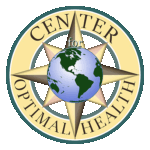Dairy
Updated December 14, 2024
Food & Supplements Program

This page is under development. Working links will provide starting information. Please let us know about your interest in this page by emailing us here, and check back soon.
File Access
Dairy, by definition, means products derives from the milk of mammals. This includes cow, goat, sheep. Mylks are milk-like liquids derived from plant sources such as almond, hemp, coconut and others.
While the words “milk” and “dairy” conjur images of happy cows on a beautiful green pasture, in Pennsylvania factory farms, slaughterhouses that would turn our stomachs if we saw what goes on inside have such pictures painted on the outside. Milk sold in stores is not allowed to label its contents such as Bovine Growth Hormone. Organic and grass-fed cows and their milk are healthier but still contain molecules that can be toxic and allergenic to much of the population.
Dairy is a hyper-controversial topic. While we were all taught that milk is a good source of protein, calcium and vitamin D, this information was promoted as a marketing strategy by the dairy industry and is at best an exaggeration. …
The classic book, The China Study, while trashing milk, is based on modern processed milk. The counter-theory, promulgated by the Weston Price Society and others, can be reviewed in the book by Weston Price entitled Nutrition and Physical Degeneration (1939). The milk of 1939 is not the milk of this century!
Ray Peat's defense of quality milk, 2016, with comments at end
Forms of Dairy
Butter
Cheese
Cream
Dairy Alternatives
Ghee
Kefir
Milk
Muesli (Budwig)
Sour Cream
Whey Protein
Yogurt


